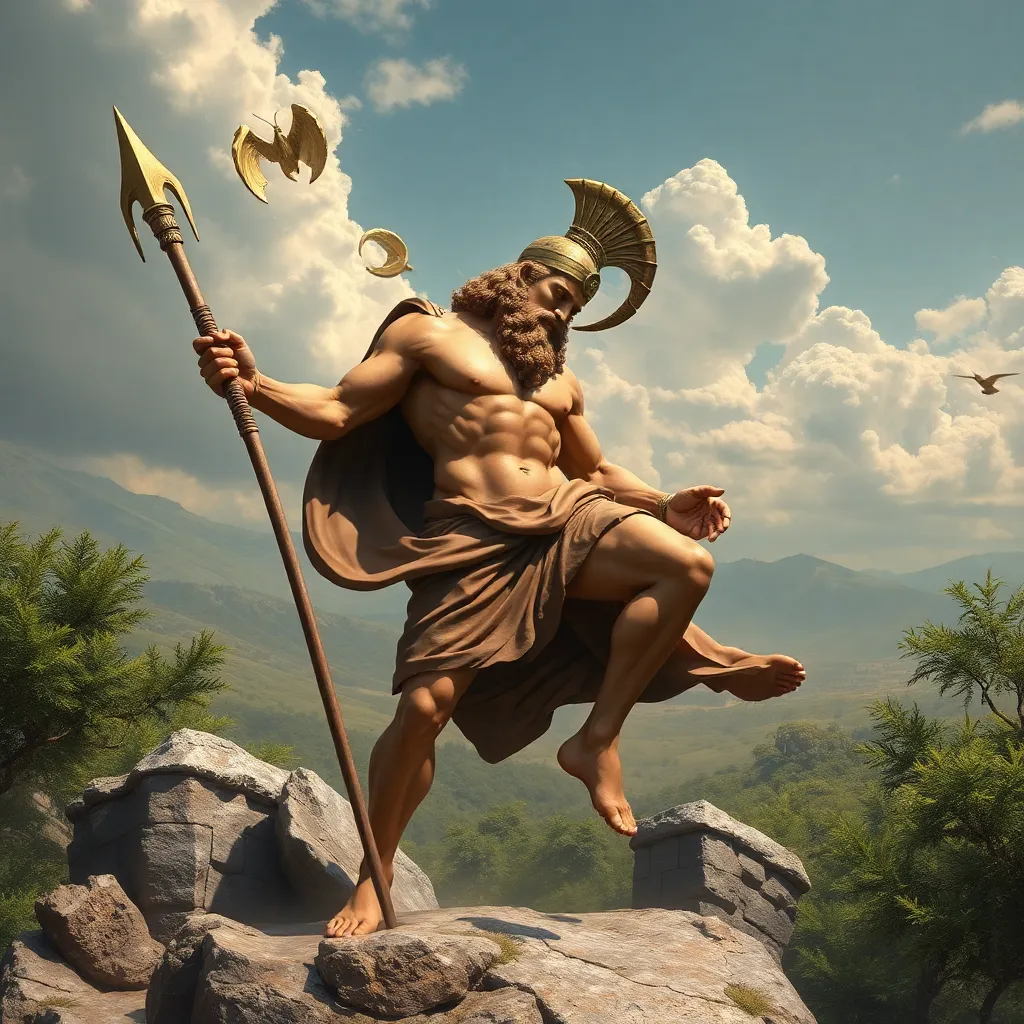The Myths Surrounding Ares’ Birth and Early Life
I. Introduction
Ares, the Greek god of war, represents the chaotic and destructive aspects of conflict. Unlike other deities who embody more noble characteristics, Ares is often depicted as a figure of brutality and bloodshed. Understanding the myths surrounding Ares’ birth and early life is crucial, as they provide insight into how the ancient Greeks perceived war and the nature of masculinity. These myths shape not only Ares’ character but also the cultural views of violence and honor in ancient Greek society.
II. Ares: The God of War
Ares is primarily known as the god of war, embodying the violent and tumultuous nature of battle. He is often associated with the physical and chaotic aspects of warfare, contrasting with Athena, who represents strategic warfare and wisdom. Ares is typically depicted as a powerful and aggressive figure, adorned in armor and often accompanied by symbols of conflict such as weapons and chariots.
The cultural perception of war in ancient Greece was complex; while warriors were celebrated for their bravery and honor, the violence of war was also feared. Ares’ character reflects this duality, representing both the glory and horror of battle. In art and literature, Ares is depicted as a figure to be both revered and reviled, embodying the destructive power of war.
III. The Parentage of Ares
Ares is the son of Zeus, the king of the gods, and Hera, the goddess of marriage and family. This lineage places him among the principal deities of Olympus, yet his character often stands in stark contrast to his divine parentage. While Zeus and Hera are associated with order and authority, Ares embodies chaos and disorder.
In comparison with other Olympian gods, Ares’ origins highlight interesting contrasts. For instance, Athena, his sister, was born from Zeus’ head, symbolizing wisdom and strategic thinking, while Ares’ birth is less celebrated and often viewed with ambivalence. This difference illustrates the varied roles that gods played in Greek mythology and the cultural values associated with them.
IV. Alternative Myths of Ares’ Birth
There are several lesser-known myths regarding Ares’ conception and birth. One version suggests that Hera, desiring to have a child without Zeus, used a magical herb to conceive Ares on her own. This alternative narrative emphasizes the complexity of Ares’ character, as it suggests a degree of independence from Zeus.
Regional variations in myth also influence the stories of Ares’ birth. In some traditions, Ares is linked closely with the warlike tribes of Thrace, where he was worshipped as a god of battle and conflict. These local beliefs enriched the broader understanding of Ares, showing how mythology adapted to cultural contexts.
V. Ares’ Early Life and Upbringing
Ares’ childhood is often portrayed as tumultuous and filled with conflict, reflective of his future role as the god of war. He is said to have been raised in a violent environment, with constant exposure to battles and warfare, which shaped his identity as a fierce warrior.
The family dynamics within the Olympian pantheon also played a significant role in Ares’ upbringing. Surrounded by powerful siblings and deities, Ares often found himself in competition with figures like Athena and Hephaestus, who represented different aspects of war and craftsmanship. This rivalry influenced his character and actions, as he sought to assert his dominance in a world filled with formidable rivals.
VI. Ares and His Siblings
Ares’ relationships with his siblings significantly shaped his identity and role in mythology. His sister Athena often represented the opposite of Ares’ brutish nature, showcasing wisdom and strategy in warfare. This contrast led to a complex dynamic between the two, as they often found themselves at odds during conflicts.
- Athena: The goddess of wisdom and warfare, often depicted as Ares’ adversary.
- Hephaestus: The god of fire and craftsmanship, whose skills in forging weapons made him a key player in the realm of war, often clashing with Ares.
- Aphrodite: The goddess of love, who had a romantic affair with Ares, further complicating his relationships with other gods.
These relationships not only defined Ares’ character but also highlighted the multifaceted nature of gods in Greek mythology, where love, rivalry, and conflict intertwined.
VII. Symbolism and Interpretations of Ares’ Early Years
The early life of Ares serves as a powerful symbol of the nature of war and masculinity. His upbringing in an environment steeped in violence reflects the ancient Greeks’ understanding of conflict as an inherent aspect of human existence. Ares embodies the primal instincts associated with war: aggression, strength, and a relentless pursuit of victory.
Moreover, Ares’ myths highlight the significance of war in shaping human nature. His character can be seen as a representation of the darker sides of humanity—our capacity for destruction, conflict, and chaos. The stories surrounding Ares encourage an exploration of the dualities of war: its capacity to create heroes and its potential to bring devastation.
VIII. Conclusion
The myths surrounding Ares’ birth and early life provide a rich tapestry of character and symbolism that reflects the complexities of war and human nature. From his tumultuous upbringing to his relationships with other deities, Ares emerges as a compelling figure in Greek mythology, representing both the allure and horror of conflict.
In modern interpretations, Ares continues to resonate as a symbol of war and heroism, reminding us of the enduring legacy of these ancient myths in understanding the human condition. The exploration of Ares not only enriches our knowledge of Greek mythology but also invites deeper reflection on the nature of conflict and the dualities that define our existence.




